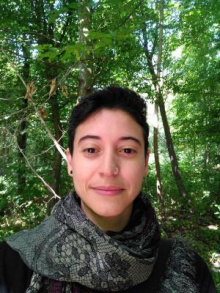Evolution of genome structure in self-fertilising populations

diala abu awad
Génétique Quantitative et Évolution, Université Paris-Saclay, Gif-sur-Yvette, France
diala.abu-awad@universite-paris-saclay.fr
Link to onsite registration: https://duo.dr13.cnrs.fr/public/evenement/index
Link to seminar:
https://umontpellier-fr.zoom.us/webinar/register/WN_ICOFlWTVS_-cN9OwnGz9Ng
It is accepted that self-fertilising species have smaller genomes than their outcrossing sister species, and this observation has been incorporated into a list of characteristics known as the “selfing syndrome”. Whether this truly is as widespread as accepted and the mechanisms explaining why self-fertilisation would have this effect is poorly understood. Empirical works have shown that, at least in Arabidopsis thaliana, smaller genome size is accompanied by fewer genes and less non-coding DNA (including but not limited to Transposable Elements). Using the Aevol framework, a simulation platform for the study of in-silico genome evolution, we examine how introducing self-fertilisation impacts genome size and structure. We find that the effect of self-fertilisation on genome size and structure greatly depends on the genomic structure of the ancestral outcrossing population.
Watch previous seminars on our YouTube channel: https://www.youtube.com/channel/UCrX4IsZ8WIFcDa0ZmC7rcQg
Nicolas Rode (nicolas.rode@inrae.fr)


